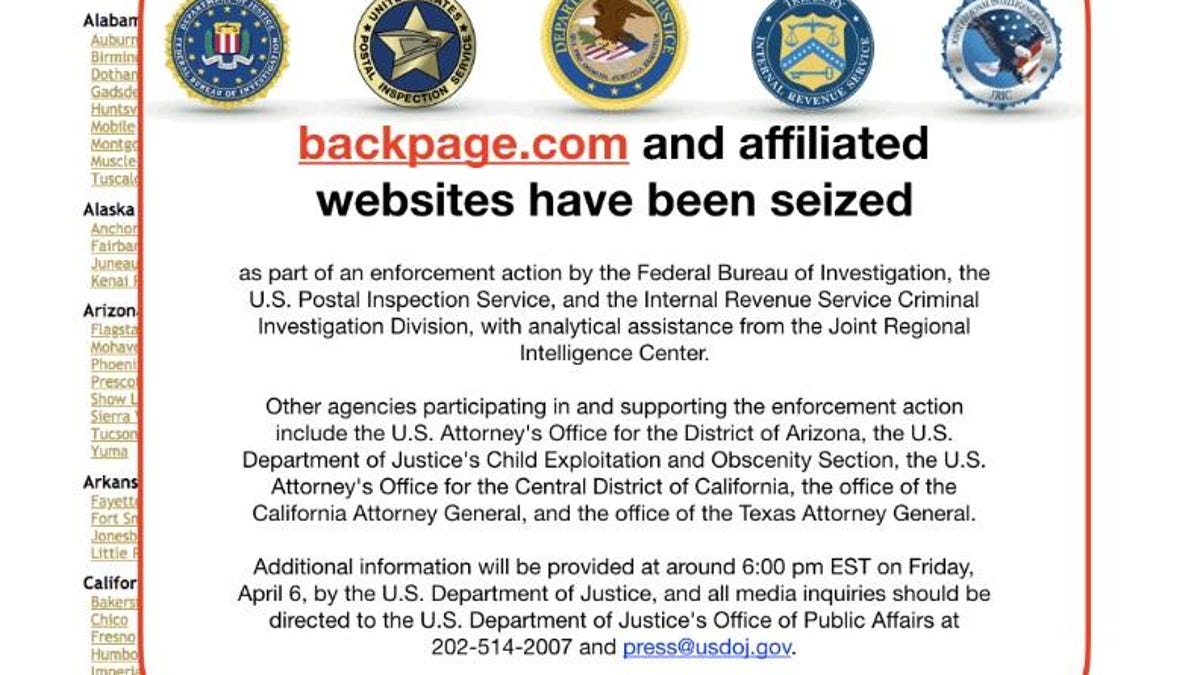It's official: Craigslist rival Backpage seized by feds for sex ads, money laundering
The US Department of Justice just confirmed: 7 people have been charged.

The front door of Backpage.com, as of April 6, 2018.
Backpage.com, a classifed ads site akin to Craigslist, was wiped off the face of the web this past Friday. The image you see above is all that's left.
What happened? On Monday, the US Department of Justice officially confirmed that it had seized the website, calling it "the Internet's leading forum for prostitution ads." Seven people have been charged with 93 counts of various crimes, including "conspiracy to facilitate prostitution" and money laundering.
"For far too long, Backpage.com existed as the dominant marketplace for illicit commercial sex, a place where sex traffickers frequently advertised children and adults alike," reads a statement from Attorney General Jeff Sessions.
On Friday, local CBS affiliate 3TV/CBS5 reported that the FBI raided the Arizona home of Backpage founder Michael Lacey, and he is indeed one of the seven defendants named in the federal indictment. The others include co-founder James Larkin and executives Scott Spear and John Brunst, as well as employees Daniel Hyer, Andrew Padilla and Joye Vaught.
You can read the full indictment here:
In January 2017, a US Senate subcommittee report accused Backpage of "knowingly facilitating online sex trafficking." According to the document, Backpage helped sex traffickers hide their posts from law enforcement by automatically removing words like "lolita," "teenage," "little girl," and "rape," then published those classified ads anyway.
Today's indictment claims that "virtually every dollar flowing into Backpage's coffers represents the proceeds of illegal activity."
Last November, the National Center for Missing and Exploited Children estimated 74 percent of the reports they'd received about child sex trafficking were based on postings from Backpage.
The US Senate and House of Representatives both recently passed the Stop Enabling Sex Traffickers Act (SESTA) in order to target sites like Backpage, but the act hasn't yet been signed into law. The bill (and today's seizure) are controversial because they're a form of online censorship, one opponents (you can read their talking points here) fear might target legitimate free speech as well. Though the bills are supposed to target sex trafficking, sex workers are also afraid they'll be swept up as well.
Craigslist recently removed its entire personal ads section for fear of being targeted after a similar bill, the Fight Online Sex Trafficking Act (FOSTA), passed the Senate. Both bills are now being combined into a single package.
Backpage's CEO was arrested in 2016 on charges of pimping by then-California Attorney General Kamala Harris, but a judge dismissed the charges two months later.

